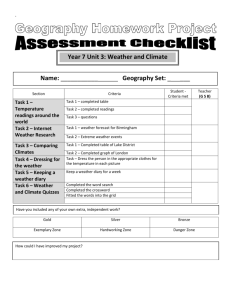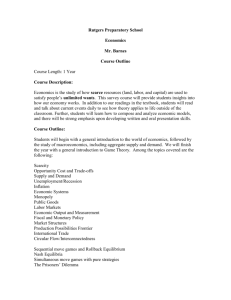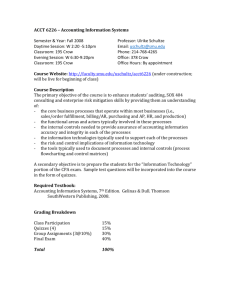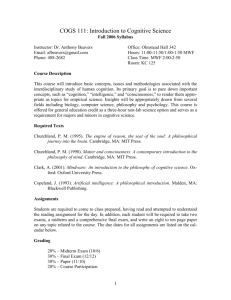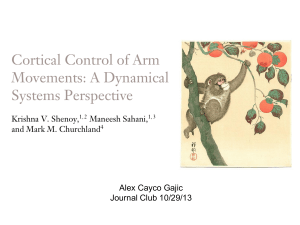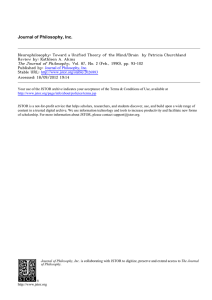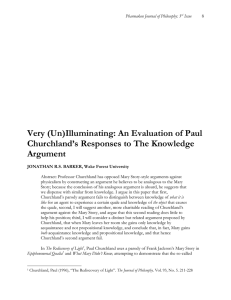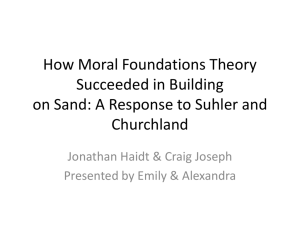Philosophy 1101 Knowledge and Reality
advertisement
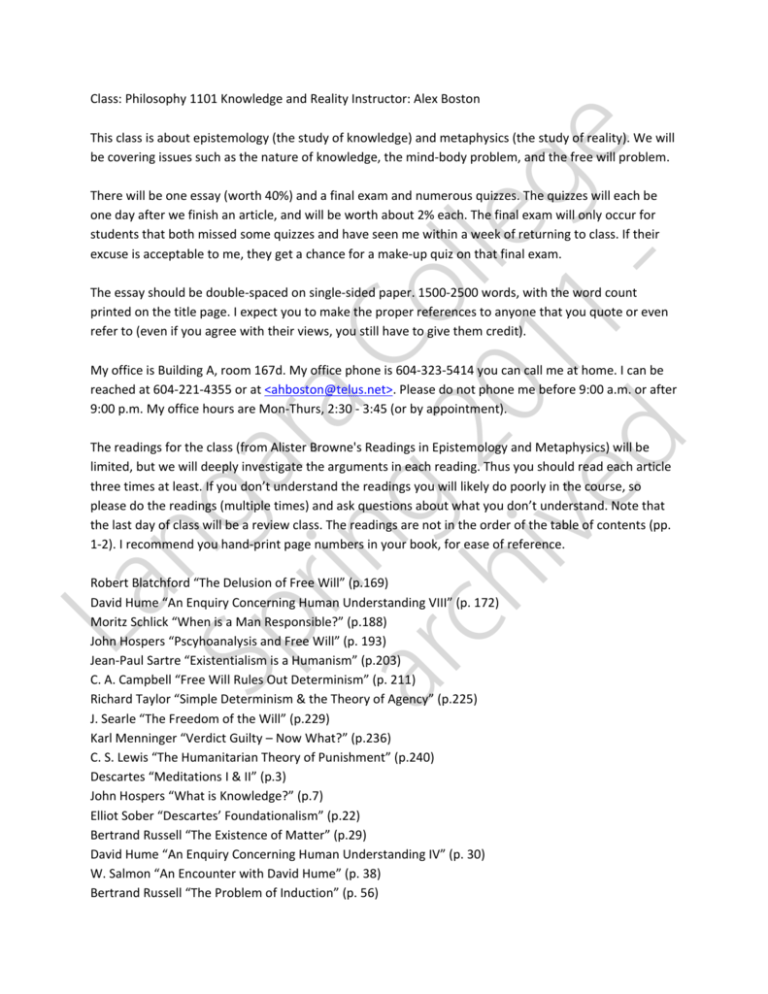
La ng Sp a r rin a C ar g o ch 20 lle iv 11 ge ed - Class: Philosophy 1101 Knowledge and Reality Instructor: Alex Boston This class is about epistemology (the study of knowledge) and metaphysics (the study of reality). We will be covering issues such as the nature of knowledge, the mind‐body problem, and the free will problem. There will be one essay (worth 40%) and a final exam and numerous quizzes. The quizzes will each be one day after we finish an article, and will be worth about 2% each. The final exam will only occur for students that both missed some quizzes and have seen me within a week of returning to class. If their excuse is acceptable to me, they get a chance for a make‐up quiz on that final exam. The essay should be double‐spaced on single‐sided paper. 1500‐2500 words, with the word count printed on the title page. I expect you to make the proper references to anyone that you quote or even refer to (even if you agree with their views, you still have to give them credit). My office is Building A, room 167d. My office phone is 604‐323‐5414 you can call me at home. I can be reached at 604‐221‐4355 or at <ahboston@telus.net>. Please do not phone me before 9:00 a.m. or after 9:00 p.m. My office hours are Mon‐Thurs, 2:30 ‐ 3:45 (or by appointment). The readings for the class (from Alister Browne's Readings in Epistemology and Metaphysics) will be limited, but we will deeply investigate the arguments in each reading. Thus you should read each article three times at least. If you don’t understand the readings you will likely do poorly in the course, so please do the readings (multiple times) and ask questions about what you don’t understand. Note that the last day of class will be a review class. The readings are not in the order of the table of contents (pp. 1‐2). I recommend you hand‐print page numbers in your book, for ease of reference. Robert Blatchford “The Delusion of Free Will” (p.169) David Hume “An Enquiry Concerning Human Understanding VIII” (p. 172) Moritz Schlick “When is a Man Responsible?” (p.188) John Hospers “Pscyhoanalysis and Free Will” (p. 193) Jean‐Paul Sartre “Existentialism is a Humanism” (p.203) C. A. Campbell “Free Will Rules Out Determinism” (p. 211) Richard Taylor “Simple Determinism & the Theory of Agency” (p.225) J. Searle “The Freedom of the Will” (p.229) Karl Menninger “Verdict Guilty – Now What?” (p.236) C. S. Lewis “The Humanitarian Theory of Punishment” (p.240) Descartes “Meditations I & II” (p.3) John Hospers “What is Knowledge?” (p.7) Elliot Sober “Descartes’ Foundationalism” (p.22) Bertrand Russell “The Existence of Matter” (p.29) David Hume “An Enquiry Concerning Human Understanding IV” (p. 30) W. Salmon “An Encounter with David Hume” (p. 38) Bertrand Russell “The Problem of Induction” (p. 56) La ng Sp a r rin a C ar g o ch 20 lle iv 11 ge ed - Paul Edwards “Bertrand Russell’s Doubts about Induction” (p. 62) T. Nagel “Other Minds” (p. 73) John Stuart Mill “Other Minds” (p. 77) Eliot Sober “Dualism and the Mind/Body Problem” (p. 79) Paul Churchland “The Ontological Problem” (p. 84) D. M. Armstrong “The Nature of Mind” (p. 92) Paul Churchland “Functionalism” (p. 99) Thomas Nagel “What is it Like to be a Bat?” (p. 103) Frank Jackson “Epiphenomenal Qualia” (p. 111) Paul Churchland “Reduction, Qualia, ...” (p. 118) John Searle “How We Fit into the Universe: The Mind as a Biological Phenomenon” (p. 125) Alan Turing “Can Machines Think?” (p. 139) John Searle “Is the Brain’s Mind a Computer Program?” (p. 157) P. & P. Churchland “Could a Machine Think?” (p. 163) W.K. Clifford “The Ethics of Belief” (p. 16) William James “The Will to Believe” (p. 19) "For questions regarding transfer and articulation, please go to the BC‐TRANSFERGUIDE, <http://bctransferguide.ca/>"
